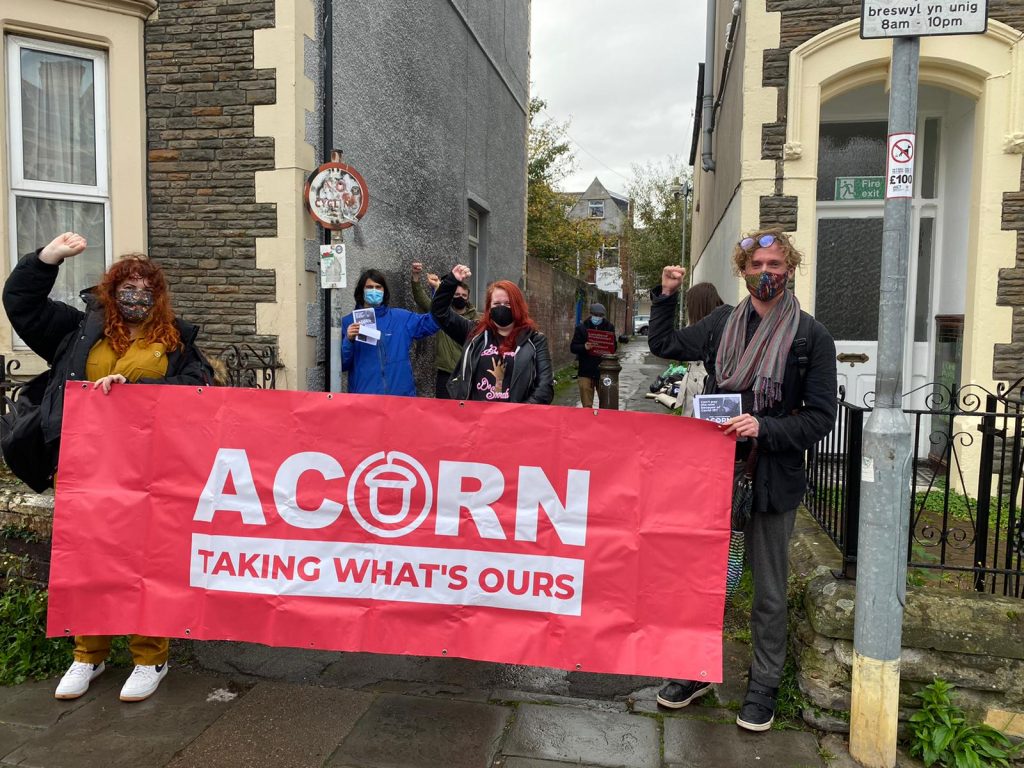Criminal landlords and lettings agents are not being held accountable because of a failure to enforce the law, argues Nicki Kindersley.
As the only community union representing private tenants in Wales, ACORN Cardiff members were shocked to agree with the National Residential Landlords Association’s (NRLA) article in the Welsh agenda that Rent Smart Wales needs real enforcement powers.
Rent Smart Wales (RSW) needs to show its enforcement strength against criminal landlords and slum housing across Wales. But as the NRLA’s research shows, RSW has mostly prosecuted and fined landlords for breaching registration rules, not for much more serious violations of regulations.
This is partly because RSW passes on enforcement action to overstretched Local Authorities.
As such, RSW does not act for tenants; it mainly works to maintain administrative order over landlords and lettings agencies.
However, the ‘accountability deficit’ the NRLA points to does not sit entirely with RSW. Welsh landlords and letting agents frequently breach the regulations RSW is supposed to uphold.
As a result, our community union ACORN Cardiff is flooded with requests for help from private tenants.
In the vast majority of our cases, the landlords, agents and properties in question have not been registered with RSW – and even where they have been registered, they have not provided safe housing to basic regulatory standards.
“We successfully fought off an illegal eviction and harassment campaign… [the] landlord sits on the committee of an advisory body on ‘best practice’ in the private rental sector!”
Our union has won substantial rent pay-backs and repairs to unsafe properties from both registered and unregistered landlords and agencies, doing the work for private tenants that RSW and Local Authorities are not.
Some Cardiff landlords apparently do not believe in accountability even while they influence policymakers: in an ACORN case in December, we successfully fought off an illegal eviction and harassment campaign against a young tenant by her unregistered landlord.
This landlord sits on the committee of an advisory body consulted by Cardiff Council on ‘best practice’ in the private rental sector!
If RSW now maintains a surplus of approximately £3.8m as estimated by the NRLA, then this money should be used how it is supposed to be, to enforce the safety and welfare of private tenants, not refunded to landlords.
The NRLA appears to see RSW as an expensive nuisance to the business of being a landlord, instead of what it is: a dysfunctional regulatory body that does harm to some of the most vulnerable people in Wales with its inaction.
How then should this regulatory body be reformed? Again, ACORN Cardiff is surprised to partly agree with the NRLA. There is a deep political neglect of tenants in the private rental sector in Wales, of which the toothless RSW is a part.
But the NRLA complains about the lack of national political management of RSW, hosted currently by Cardiff Council, likely because they know that a third of Members of the Senedd are landlords themselves, and that the Welsh Government might look more sympathetically on their possible future requests for lower registration fees and less paperwork.
Instead, ACORN Cardiff believes that the Welsh Government consistently abandons responsibility for tenants across Wales in their efforts to use the private rental sector as a sticking plaster for the national housing crisis.
RSW is supposed to be the Welsh Government’s key regulatory body to make sure that tenants are safe and protected from exploitative landlords, but with minimal enforcement focused on paperwork, RSW provides no practical help for tenants in crisis.
“Private renters who complain about housing safety or maintenance issues have an almost one-in-two chance of being served a ‘revenge’ eviction notice within six months.”
ACORN Cardiff even had to alert the Welsh Government that RSW still does not guarantee that tenants reporting their landlords for non-compliance will remain anonymous – despite research from Citizens’ Advice indicating that private renters who complain about housing safety or maintenance issues have an almost one-in-two chance of being served a ‘revenge’ eviction notice within six months.
The problems with RSW are part of the Welsh Government’s wider lack of understanding of the power dynamic between tenants and landlords.
The Housing Minister Julie James recently encouraged renters suffering job losses during the pandemic to negotiate their rent arrears with their landlords, abdicating the Government’s responsibility to some of the poorest residents and giving landlords more power over their tenants’ finances.
ACORN Cardiff is currently fighting a case for a member whose lettings agent has even tried to renege on an agreed rent waiver.
The other main plank of the Welsh Government’s efforts to help private tenants during the pandemic, the flagship £8m Tenant Saver Loan Scheme, pays rent arrears directly to landlords and saddles tenants in crisis with a loan plus interest: essentially guaranteeing landlords’ income while pushing struggling tenants into debt.
This scheme is already a failure – as of last week, the Scheme has only approved 24 loans totaling £47,054, a ridiculous 0.59% of the money put aside to help tenants.
This leaves private tenants facing unsafe housing, irresponsible landlords, and the pandemic’s economic crisis essentially on their own. We are contacted every day by tenants in Cardiff struggling to negotiate urgent repairs, unfair charges and threats of illegal eviction.
While Rent Smart Wales appears unable to provide private sector tenants with the support and enforcement that they need in these situations, our community union will continue to unionise tenants across Wales and take direct action to hold landlords accountable.
All articles published on the welsh agenda are subject to IWA’s disclaimer.





